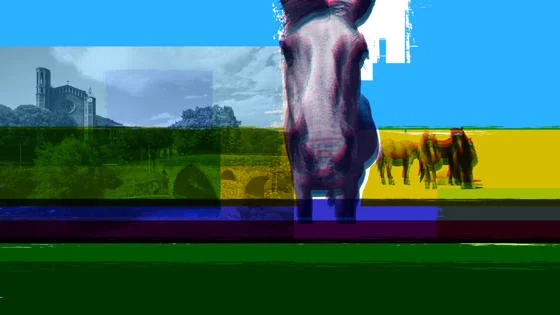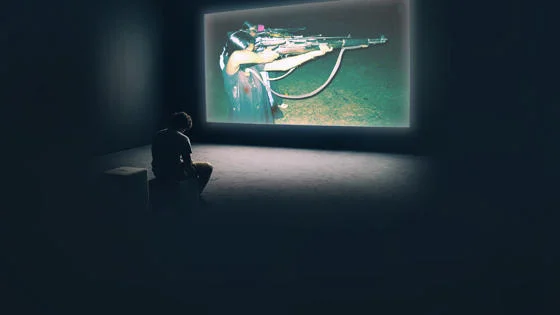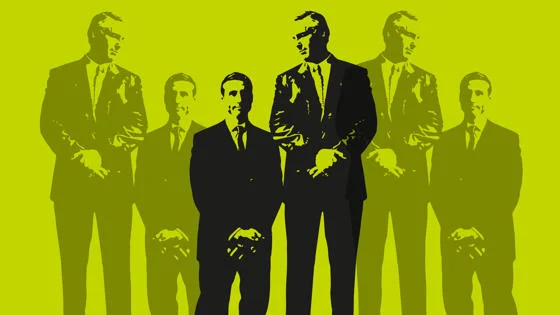When knowledge is power, inequality is inevitable: why the Bolsheviks were never going to “level up” society
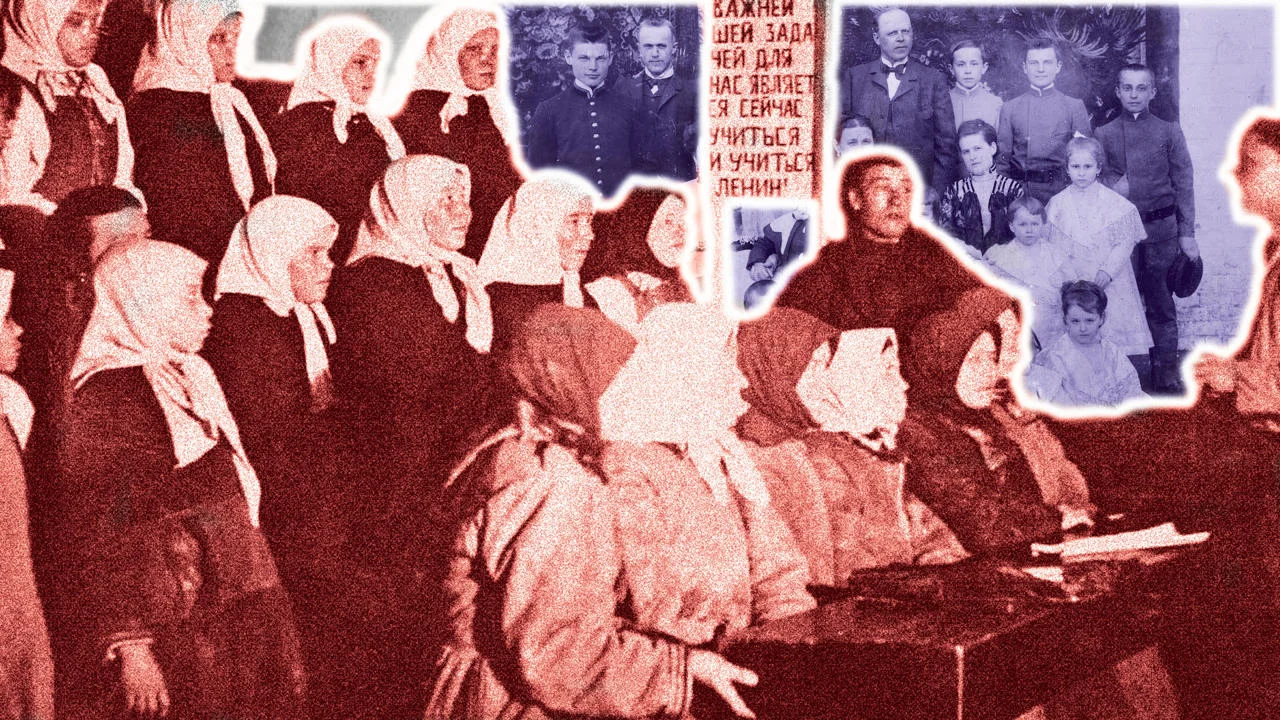
Contents
- Creating a more equal society requires not just the redistribution of money, but knowledge
- Educating the uneducated – why the Bolsheviks needed the bourgeoisie
- What if hedge fund management is more appealing than school teaching?
- We are all inadvertently complicit in perpetuating social inequality
- Studies of communist Russia have misinterpreted issues of inequality
- Both communist and capitalist societies elevate those with knowledge
- Estate origins of inequality, knowledge societies and the problem of the cameraman
One morning in October 2021, I woke with a sense of anticipation - and a little concern. I had agreed to give a talk about my latest book, The Estate Origins of Democracy in Russia: From Imperial Bourgeoisie to Post-Communist Middle Class, at the Grimshaw Club, LSE’s oldest student society.
The book is about the long shadow of Tsarist Russia’s legacies of the neglected institution of estate (sosloviye), and how they shape present social structure and democracy despite the seven decades of communism. In it, I show:
- how even the most brutal levelling dictatorships are unable to destroy social hierarchies from feudal orders of the past;
- how these archaic long-gone orders account for the origin and reproduction of present-day professional middle classes; and
- how the resilience of social hierarchies, that in the modern day and age increasingly privilege knowledge and human capital, contributes both to democratic impulses and populism-fuelling resentment and anger among those habitually left behind, in current autocracies like Russia and Western democracies alike.
It’s not a book easily packed into a sentence (as the proverbial "elevator pitch" to the press editor or literary agent recommends), or a time-constrained lecture.
Creating a more equal society requires not just the redistribution of money, but knowledge
The room was jam packed. I began by asking the students to raise their hands if they came from countries they thought were unequal, followed by the question "What one thing would you do to change that?"
Unsurprisingly, most raised their hands to the first question. And to the second, I got what I expected too. Some spoke of improving access to education, others about taxation, offshore havens, and redistribution.
Then I delved into my book. Drawing a diagram with little persons and stashes of money underneath them, I explained that if you have person A who is rich, and citizen B who has nothing, and we want to improve equality in a material sense, we’d take some cash from A’s metaphorical sack of money and put at least some of it into that of B’s.
Coercion is not a long-term solution: if you harass, shoot, and jail too many As, there will be no one left to teach and educate the Bs.
What happens though if you face a dilemma like the Bolsheviks did after the October 1917 Revolution - you want to not just redistribute wealth, but also the more intangible human, cultural and knowledge-professional capitals? For the social revolutionaries had proclaimed the fight against illiteracy, backwardness, and ignorance and were eager to promote formal education among the downtrodden peasant and proletarian masses.
Would you simply take A’s knowledge and give it to B? Not easily done. And what if the stylised A comes from social groups that the Bolsheviks themselves branded as the bourgeoisie - in Marxist class schemata, to be relegated to the dustbin of history?
Educating the uneducated – why the Bolsheviks needed the bourgeoisie
As diagram 1 below shows, society in Tsarist Russia had been highly stratified. The institution of estate, in Russian sosloviye, rigidly regimented not only basic freedoms, property rights and taxation, but also access to education.
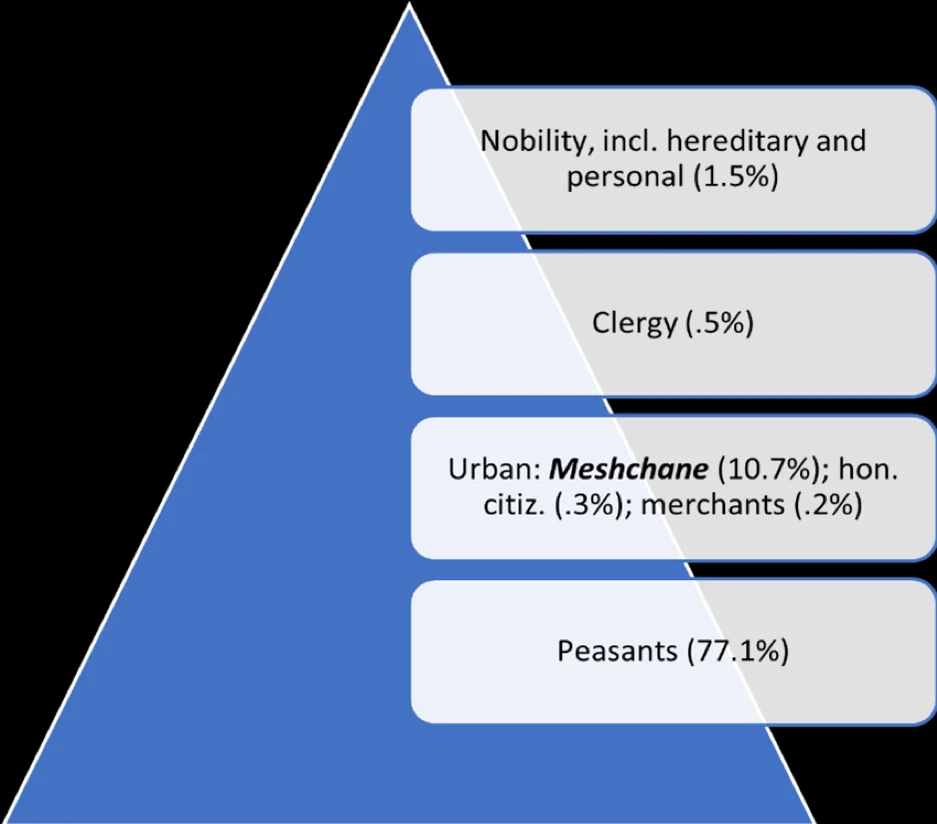
At the pinnacle of the estate hierarchy were aristocracy and life nobles. Together they made up less than 2 per cent of the Empire’s population. Next in the hierarchy came the sosloviye of clergy, at 0.5 per cent a minuscule share of the population, followed by the urban groups of merchants (0.2 per cent), honoured citizens (0.3 per cent), and meshchane, a larger group (10.7 per cent) most approximating the bourgeoisie in a Western sense, of small urban and rural tradesmen, property owners, teachers, doctors, pharmacists, notaries.
These groups were citizens, so relatively-speaking, by standards of the Tsarist state, free, unlike those at the bottom - nearly 80 per cent of Russian subjects - who remained de facto without many of the rights that the other estates enjoyed, even though peasants had been emancipated in the 1860s.
The free or semi-free enjoyed far better access to education than the peasants, colonising elite classical gymnasia (equivalent of high school, completion of which was a big deal even in America and Western Europe at that time) and technical colleges and university faculties that prepared them for the lives of modern, 20th century-style professionals.
It is these people - the bourgeois/aristocrat/clergyman-turned modern professional - who embodied the metaphorical A to whom the Bolsheviks would have to turn if they wanted to tackle the human capital dimension of inequality. So A from among the "educated estates" would have to be approached to educate the B (illiterate peasant or peasant-turned-factory worker).
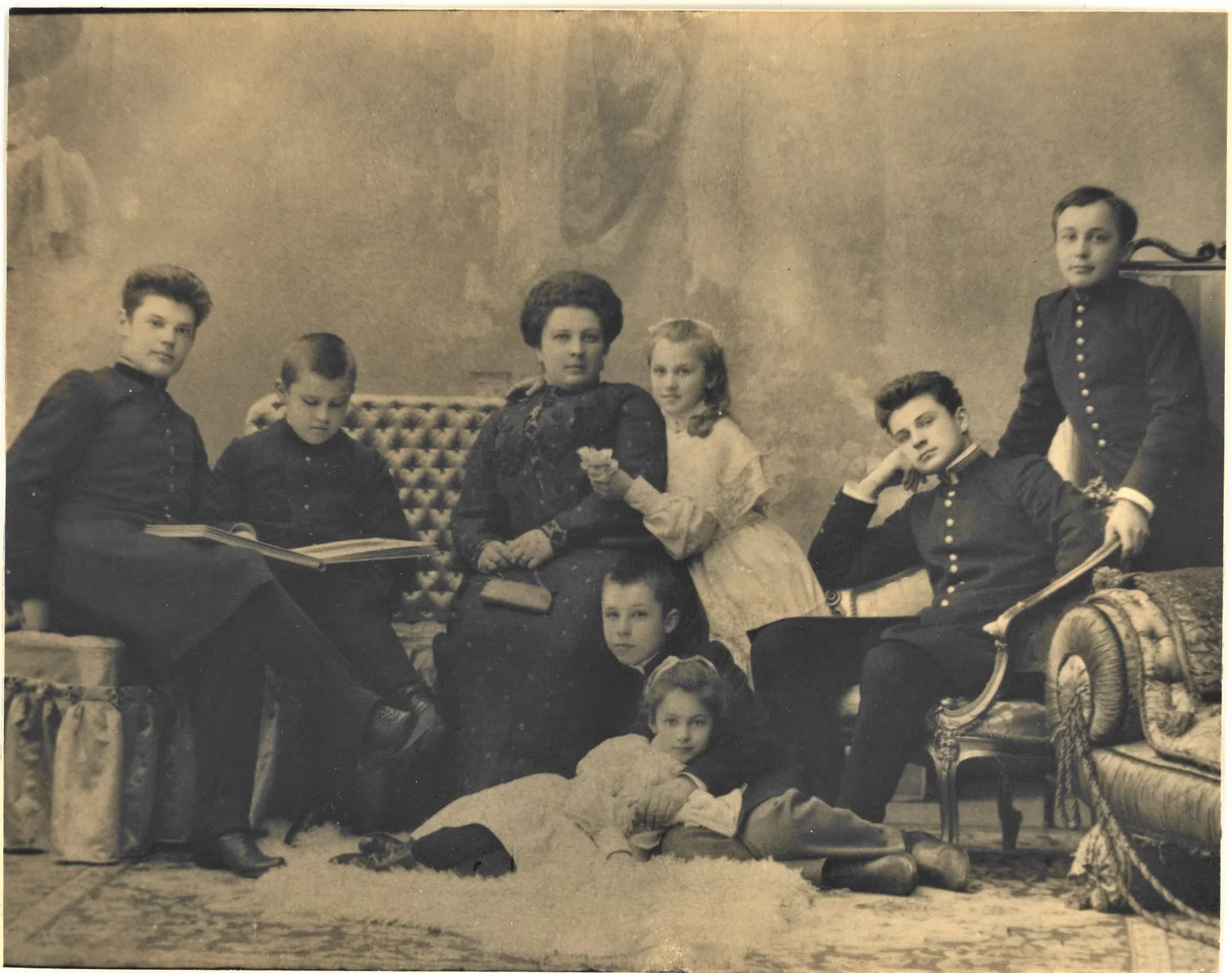
What if hedge fund management is more appealing than school teaching?
But what if A prefers to work for a hedge fund instead, as it pays more money than being a schoolteacher? In Bolshevik Russia, A of course had no hedge fund option – the Bolsheviks were against capitalism. But she could sail ship, to Europe, Australia, or America where she would be free to join the 1920s equivalent of the hedge fund. And the Bolsheviks knew this. Hundreds of thousands of the crème de la crème of educated society left Russia after the Bolshevik Revolution.
So the Bolsheviks start creating perks for A. They also force them to work for the revolutionary state at gunpoint. But coercion is not a long-term solution: if you harass, shoot, and jail too many As, there will be no one left to teach and educate the Bs. Instead the As continue to get more perks and their privileges become institutionalised and formalised in Soviet state policy.
Eminent Tsarist-era scientists, surgeons, engineers, and pedagogues get free apartments in elite quarters of Moscow or Leningrad, access to gourmet food, and holidays in fancy resorts like the Crimea; their children get access to prestigious universities even though quotas continue to favour peasants and "proletarian" workers.
If even the most brutal communist dictatorship that destroyed capital and levelled incomes was not able to solve the problem of status…, then what hope for more benign democratic welfare states?
We are all inadvertently complicit in perpetuating social inequality
Asymmetry of human capital then quickly turns into asymmetry of A’s status against that of B. But let’s not just blame the state for inequality! Status, as I show in my book, is also reproduced because society bestows deference selectively on the pedigree professional who is most trusted, say, to treat, educate, and raise your child from poverty, over the newly minted one.
A mother with sick and starving children, for example, is unlikely to choose the peasant woman who can barely read or write, but is now a doctor, over the most famous surgeon trained in Imperial Russia. And so we see how not just the state, but wider society, including the least advantaged groups, become inadvertently complicit in perpetuating social inequality.
Of course, we all know that Soviet society was unequal. But when experts talk of Soviet society, they do not speak of the aristocrats, the clergy, merchants and meshchane discreetly reconstituting their status – and along with it that of the entire hierarchy of Imperial estates – under the thin veneer of the proclaimed communist egalitarianism.
In our outrage with the material aspects of inequality – the offshore havens… the uber-rich... – I contend that we are skirting an important issue of the longer-term drivers of inequality.
Studies of communist Russia have misinterpreted issues of inequality
How did historians, political scientists and sociologists studying communist Russia get it all so badly wrong? Generations of students have been fed the diet of "Communism as The Great Rupture" narrative. There was the Soviet propaganda of course that proclaimed a whole new revolutionary dawn. There were ideologues and sympathisers to Bolshevism in the west.
Even the most highly regarded scholars and intellectuals continued to see Soviet society through the prism of Marxist-Leninist dogma. The historian Sheila Fitzpatrick, for example, celebrating the "spectacular" ascent of youth from "working-class and peasant families" into the ranks of "qualified specialists" as evidence of "a fulfilment of the promises of the revolution."
And then we have the latest polemics about inequality that received renewed momentum with the publication of Thomas Piketty’s Capital in the Twenty-first Century. Piketty skirts the issue of intangible capitals of the kind that I discuss in Estate Origins. Even when discussing the work of the French sociologist Pierre Bourdieu, who wrote about the significance of non-tangible cultural, social, and human capitals in perpetuating social hierarchies in France, Piketty couches inequality in materialist-economistic terms. This is a serious misreading of Bourdieu’s work. The period coinciding with communism is considered as a historical phase of levelling.
Both communist and capitalist societies elevate those with knowledge
But are findings on Russia applicable only to the narrow slice of communist societies? In our outrage with the material aspects of inequality – the offshore havens, the revelations of the Pandora and Paradise papers, the uber-rich in the top percentiles of wealth distribution – I contend that we are skirting an important issue of the longer-term drivers of inequality.
What defines modern social structure and inequalities are processes that began when feudalism started giving way to citizenship and the privileging of knowledge that we associate with the present era. That is when the habitually educated layers of pre-modern societies, where social station was ascribed at birth, joined the world of the organisationally-incorporated or free professional. This juncture anticipates the significance that we attach to human capital in the knowledge economies of the present.
Just like in communist Russia, both the public policies of developmental welfare states that aim to socially elevate, educate, and enlighten those least privileged and most vulnerable, and the agency of the wider society, conspire to maintain social hierarchies and status in ways that benefits those with the highest stocks of intergenerationally reproduced knowledge. And if even the most brutal communist dictatorship that destroyed capital and levelled incomes was not able to solve the problem of the status of the A as against the B, then what hope for more benign democratic welfare states?
Estate origins of inequality, knowledge societies and the problem of the cameraman
As I was wrapping up my Grimshaw session, I was reminded of Piketty’s talk when he came to speak at LSE at a packed hall full of awed students. I recalled a comment from the late sociologist Alvin Gouldner about the problem of the cameraman.
Gouldner reminded us that in Marxist dogma, there was no place for intellectuals, professionals, the middle class. There were the bourgeois, the proletariat, the landlords, and the peasants. And what about the Marxes and the Engelses, the Lenins? They didn’t just enjoy better living conditions than the peasants and workers on whose behalf they wrote. They also enjoyed higher status.
To Gouldner, they were like the cameraman, who takes a snapshot, drawing our gaze to a social problem, while remaining invisible, hidden behind the camera, and, as such, beyond the scrutiny of class relations. We therefore never clamour for his revolutionary downfall – nor of course, would he clamour for his own fall from the pedestal of social esteem.
As I was wrapping up my lecture, I thought better than to dethrone an idol from the pedestal. So I kept quiet about that other talk and the problem of the cameraman. But the thorny dilemma remains. It is at the root of our unequal societies. The cameraman – including the LSE professor – critiques social ills. They admonish. But in the act of doing so, stay high on the podium, on the pedestal of social status and esteem.
This film and LSE iQ podcast can also be found on LSE Player.
Banner image source: Northwestern State University of Louisiana, Watson Memorial Library, Cammie G Henry Research Center, Constantine Neklutin collection.
Download a PDF version of this article


